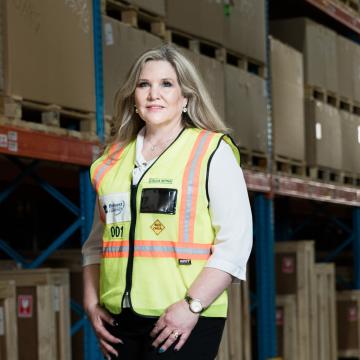Along with their own debt repayments (and the interest thereon) taking an upward trend, emerging market governments are under more pressure from the increasing strength of the US dollar. Many of these governments were unable to provide as much support and stimulus compared to developed economies, and calls are mounting for them to increase their spending as the world emerges from Covid-19 and associated lockdowns.
The major risk is that should they take on more loans and debt to fund more infrastructure and welfare spending, they expose their citizens to crises (as is currently taking place in Sri Lanka) in the future. A likely low-growth economic environment for the next few years means that governments will collect lower levels of tax revenue, and in turn they simply will not have the funds available to spend on large-scale infrastructure projects and welfare programmes.
According to Bloomberg, emerging market governments are “burning through the equivalent of more than $2 billion of foreign reserves every weekday in an attempt to prop up their currencies against the dollar. In total this year, they’ve drained reserves - the emergency stash they hold to fend off severe economic crises - by $379bn.” As the dollar strengthens, and a given government has more debt in those terms, it will be all the more difficult to repay that debt.”
Bloomberg highlights that 36 currencies worldwide lost at least a tenth of their value in 2022. Ten of these 26, including the Sri Lankan rupee and Argentine peso, are down more than 20%. Inflation generally eats away at the value of a currency and the spending power thereof, which in concrete terms means that consumers’ money does not buy as much for them as it did before. Some families and individual consumers will be able to find room within tighter budgets to keep some of the spending priorities; others will need to radically change their spending patterns to focus on their highest needs.
It is very likely that the US Federal Reserve (Fed) will continue to hike interest rates through the second half of this year, and at least into the first half of 2023 as well. In its mission to combat red-hot inflation, the Fed will therefore continue to strengthen the dollar. That some emerging markets could experience currency crises – and down the line, debt crises – becomes an ever bigger possibility.
Currency and debt crises bring with them serious socio-political instability, protests, and in some cases violent uprisings. Citizens see their savings and spending power effectively wiped out as their currency becomes worth little, and many will take to the streets to vent their frustration and sense of a loss of power and agency.
If a given country’s currency weakens very quickly, and it also sells dollars it has in reserve, this sends a signal to investors that government’s ability to borrow from international lenders will be negatively affected. Their access to international capital markets will also be affected. Countries that are more reliant on imports, especially manufactured components and finished products, will find themselves paying more for these imports. The longer-term consequence is once more depressed economic activity and growth, and lower amounts of saving.
Capital flowing into emerging markets is at the lowest level since the period just after the start of the Covid-19 pandemic. Emerging market governments that implement pro-economic freedom reforms will be better able to attract foreign capital and investment, and through doing so ensure that they will have continued access to international markets.
Can emerging market governments weather global pressures?

Comments | 0









